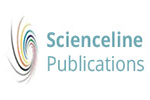(2017) Adverse effects of chemotherapy in dogs. World's Veterinary Journal. pp. 74-82. ISSN 23224568 (ISSN)
|
Text
WVJ 7(3) 74-82, Sept 25, 2017.pdf - Published Version Download (628kB) |
Abstract
Owners of dogs with cancer are often offered chemotherapeutic treatment. However, clients who seek veterinary care for pets with cancer are often concerned about the potential negative impact of chemotherapeutic treatments on their animals’ quality of life. The purpose of this retrospective case series was to investigate the delayed acute effects of chemotherapy drugs in dogs receiving cancer treatment and their owners’ opinions regarding chemotherapy acceptance by their pet. In this study, 292 dogs that were treated with chemotherapy as a definitive and/or adjuvant treatment for cancer. Medical records were reviewed to determine the chemotherapy agent used and if they had any delayed adverse effects or not. Side effects were classified according to VCOG-CTCAE grading of adverse effect severity veterinary co-operative oncology group. Lomustine, carboplatin, vincristine, doxorubicin, cyclophospha-mide, mitoxantrone, and vinblastine were administered in 16%, 20%, 15%, 18%, 16%, 8%, and 7% of the cases respectively. The most common adverse effects were neutropenia (22%), vomiting (21%), diarrhea (20%) and inappetence (20%). Cyclophosphamide and vincristine were the agents that had caused more adverse gastrointestinal effects, while lomustine was the drug that had caused more hematologic effects. In some dogs receiving lomustine and carboplatin, neutropenia (some of them severe) had occurred as early as in the sixth day. According to the current grading system of adverse effects induced by chemotherapy, general tolerance to chemotherapy is referred to as grade 1, which was observed in 83% of the cases. Owner opinion was positive in most cases, and 77% of the owners had evaluated that the treatment was well tolerated by their dogs. In contrast, 8% of the treatments were poorly tolerated and they had negatively impacted the affected dogs’ quality of life. Based on the data examined, we would recommend that gastrointestinal adverse effects must be prevented with antiemetic medication, especially in dogs receiving cyclophosphamide, vincristine, carboplatin and doxorubicin. Hematologic profile must be performed as early as in the 6-7th day after lomustine and carboplatin, as severe neutropenia can occur. Adverse chemotherapy effects may occur in about 20-25% of canine patients.
| Item Type: | Article |
|---|---|
| Keywords: | Canine, Oncology, Chemotherapy, Side effect, Tolerability |
| Subjects: | Q Science > Q Science (General) S Agriculture > SF Animal culture |
| Divisions: | World's Veterinary Journal (WVJ) |
| Page Range: | pp. 74-82 |
| Journal or Publication Title: | World's Veterinary Journal |
| Journal Index: | Scopus |
| Volume: | 7 |
| Number: | 3 |
| Publisher: | http://dx.doi.org/10.5455/wvj.20170896 |
| Identification Number: | https://doi.org/10.5455/wvj.20170896 |
| ISSN: | 23224568 (ISSN) |
| Depositing User: | Dr. Alireza Sadeghi |
| URI: | http://eprints.science-line.com/id/eprint/396 |
Actions (login required)
 |
View Item |

